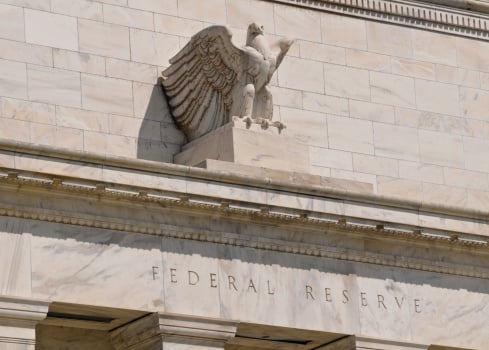The Federal Reserve made its announcement for the FOMC policy meeting on Wednesday afternoon. Overall what 24/7 Wall St took away from the meeting was that the Fed plans to remain more dovish than hawkish, in an attempt to not rock the boat. However considering the recent Consumer Price Index (CPI) and Purchaser Price Index (PPI) readings, we would like to ask, are these indicative of deflation, and is the Fed making the safe dovish move out of fear? Source: Thinkstock
Source: Thinkstock
Consumer prices fell in August, which created a conundrum for the Federal Reserve, which has been acting antsy over its ambition to raise interest rates and end the quantitative easing measures. CPI had a seasonally adjusted reading of -0.2% for August, which fell from 0.1% in the previous month. This was the first monthly decline for the measure since April of 2013.
Core CPI, excluding food and energy, remained flat at 0.0%, the first time this measure didn’t increase since October 2010.
The PPI for final demand remained flat in August on a seasonally adjusted basis, and the PPI without food and energy marked only an increase of 0.1%. The index for final demand goods moved down 0.3% in August, the largest decrease since a 0.7% drop in April 2013. More than 80% of the August decline is attributable to prices for final demand energy, which fell 1.5%. The index for final demand foods decreased 0.5%.
Considering the decrease in the consumer-side inflationary measure of CPI and a flat reading from producers, we can see a deflationary picture start to form. As Fed Chair Yellen trims bond buying and continues to keep interest rates low for the time being, we can expect that this tentative move was a result of a fearful Federal Reserve looking to stave off deflation for now.
ALSO READ: OECD Cuts U.S. GDP Improvement Estimate
Essential Tips for Investing: Sponsored
A financial advisor can help you understand the advantages and disadvantages of investment properties. Finding a qualified financial advisor doesn’t have to be hard. SmartAsset’s free tool matches you with up to three financial advisors who serve your area, and you can interview your advisor matches at no cost to decide which one is right for you. If you’re ready to find an advisor who can help you achieve your financial goals, get started now.
Investing in real estate can diversify your portfolio. But expanding your horizons may add additional costs. If you’re an investor looking to minimize expenses, consider checking out online brokerages. They often offer low investment fees, helping you maximize your profit.
Thank you for reading! Have some feedback for us?
Contact the 24/7 Wall St. editorial team.



